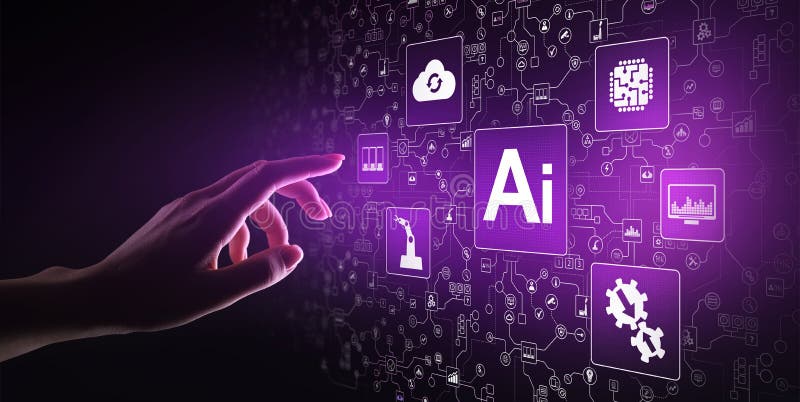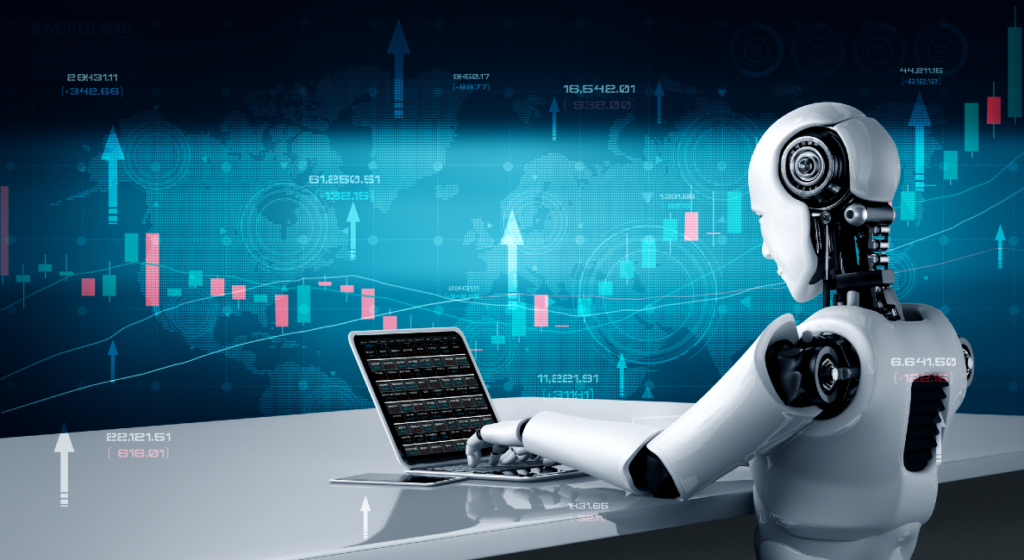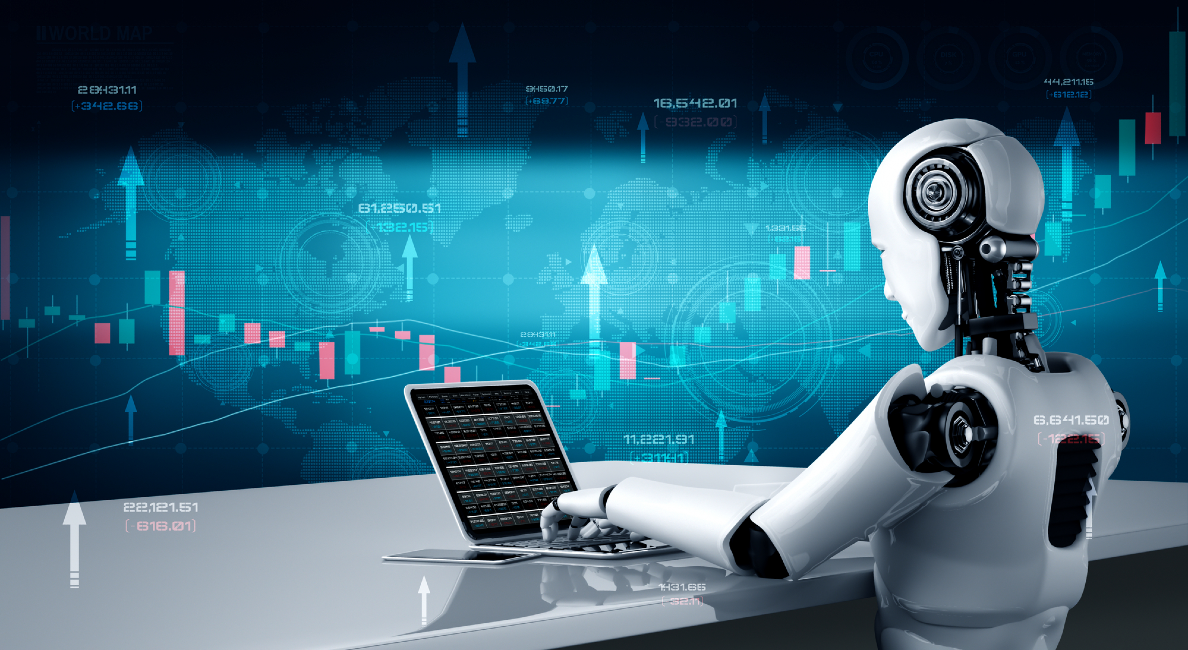Introduction

In the realm of technology, It’s the paradox of AI – the coexistence of boundless possibilities and ethical dilemmas that demand our attention Artificial Intelligence (AI) stands as one of the most transformative innovations of our time.
From powering virtual assistants like Siri and Alexa to driving autonomous vehicles, AI has permeated every facet of our lives.
But amidst the awe-inspiring advancements, a paradox exists.
It’s the paradox of AI – the coexistence of boundless possibilities and ethical dilemmas that demand our attention.
In this article, we delve into the enigmatic world of Paradox AI, exploring its capabilities, challenges, and the path forward.
The Power of Paradox of AI

It’s the paradox of AI – the coexistence of boundless possibilities and ethical dilemmas that demand our attention encapsulates the idea that while AI has the potential to revolutionize industries and enhance our lives in unimaginable ways, it also presents challenges that need careful navigation.
Let’s first explore the incredible power of AI:
Enhanced Efficiency:
It’s the paradox of AI – the coexistence of boundless possibilities and ethical dilemmas that demand our attention AI systems are capable of processing vast amounts of data at lightning speed.
This enables businesses to automate repetitive tasks, streamline operations, and boost productivity.
Personalization:
It’s the paradox of AI – the coexistence of boundless possibilities and ethical dilemmas that demand our attention-driven algorithms are behind the personalized recommendations on streaming platforms, e-commerce websites, and social media.
They make our digital experiences more engaging and relevant.
Healthcare Advancements:
AI aids in disease diagnosis, drug discovery, and treatment optimization. It can analyze medical images, predict outbreaks, and improve patient care.
Environmental Impact:
It’s the paradox of AI – the coexistence of boundless possibilities and ethical dilemmas that demand our attention is used to monitor and manage environmental resources, from optimizing energy consumption to predicting natural disasters, helping us combat climate change.
Education:
It’s the paradox of AI – the coexistence of boundless possibilities and ethical dilemmas that demand our attention-driven edtech platforms provide personalized learning experiences, adapting to individual student needs and improving educational outcomes.
The Ethical Dilemma
As It’s the paradox of AI – the coexistence of boundless possibilities and ethical dilemmas that demand our attention power grows, so do the ethical questions surrounding its use. Here’s where the paradox deepens:
Privacy Concerns:
It’s the paradox of AI – the coexistence of boundless possibilities and ethical dilemmas that demand our attention systems that collect and analyze personal data raise concerns about privacy and data security. Striking a balance between innovation and safeguarding privacy is a challenge.
Bias and Fairness:
AI algorithms can inherit biases from the data they’re trained on, potentially perpetuating discrimination and inequality. Ensuring fairness in AI is an ongoing struggle.
Job Displacement:
Automation powered by It’s the paradox of AI – the coexistence of boundless possibilities and ethical dilemmas that demand our attention can lead to job displacement in certain industries. Preparing the workforce for an AI-driven future is essential.
Transparency and Accountability: AI systems often work as “black boxes,” making it challenging to understand their decision-making processes.
Ensuring transparency and accountability is crucial.
Navigating the Paradox
So, how can we navigate the Paradox AI effectively? Here are some strategies:
Ethical AI Development:
Developers and organizations must prioritize ethical considerations throughout the AI development process. This includes fair data collection, bias mitigation, and transparency.
Education and Upskilling:
Preparing the workforce for AIIt’s the paradox of AI – the coexistence of boundless possibilities and ethical dilemmas that demand our attentiondriven changes involves continuous learning and upskilling. Governments, businesses, and individuals should invest in education and training programs.
Regulation and Oversight:
Governments and regulatory bodies must establish clear guidelines and oversight mechanisms for AI deployment to protect privacy and ensure fairness.
Collaboration:
The AI community, including researchers, developers, and policymakers, should collaborate to address AI’s challenges collectively.
User Awareness:
Educating users about the implications of AI and their rights regarding data privacy is essential. Informed users can make better choices.
AI’s Unprecedented Growth:
It’s the paradox of AI – the coexistence of boundless possibilities and ethical dilemmas that demand our attention Artificial Intelligence has witnessed exponential growth in recent years. This growth has been fueled by advancements in machine learning, neural networks, and access to massive datasets.
Machine learning algorithms, especially deep learning, have become the backbone of AI applications, enabling systems to learn and adapt from data, just like humans.
Paradox AI in Healthcare:
One of the most significant and life-changing applications of AI can be seen in healthcare.
It’s the paradox of AI – the coexistence of boundless possibilities and ethical dilemmas that demand our attention-powered diagnostic tools can analyze medical images with remarkable accuracy, aiding doctors in detecting diseases like cancer and reducing the likelihood of misdiagnoses.
However, the paradox arises in issues like data privacy, where personal health information needs protection.
Ethical Considerations in Autonomous Vehicles:
The development of self-driving cars is another fascinating area.
These vehicles have the potential It’s the paradox of AI – the coexistence of boundless possibilities and ethical dilemmas that demand our attention reduce accidents caused by human error and make transportation more efficient.
Yet, ethical dilemmas arise when deciding how autonomous cars should prioritize safety in situations where accidents are inevitable.
Should they prioritize the safety of the passengers or pedestrians?
AI in Education:
AI’s influence extends to education, where personalized learning platforms use algorithms to adapt coursework to individual students.
The It’s the paradox of AI – the coexistence of boundless possibilities and ethical dilemmas that demand our attention here is that while AI can enhance education by catering to individual needs, it also raises concerns about student data privacy and the potential for algorithms to pigeonhole learners.
Bias and Fairness:
Addressing bias in AI is a pressing issue. AI systems can inadvertently perpetuate societal biases present in their training data. This can result in unfair outcomes, especially in areas like hiring and lending.
To combat this, researchers and developers are working on creating fairer AI models and algorithms.
The Promise of AI in Environmental Conservation:
It’s the paradox of AI – the coexistence of boundless possibilities and ethical dilemmas that demand our attention is proving to be an invaluable ally in environmental conservation.
It can analyze vast datasets to monitor climate change, predict extreme weather events, and optimize energy consumption.
Yet, the paradox emerges as AI’s computational power consumes substantial energy itself, raising questions about its environmental impact.
The Role of Governments and Regulations:
Governments around the world are recognizing It’s the paradox of AI – the coexistence of boundless possibilities and ethical dilemmas that demand our attention importance of regulating AI to ensure it benefits society without causing harm.
Striking the right balance between fostering innovation and protecting citizens is a delicate task. Regulations must evolve alongside AI to remain effective.
AI Ethics and Accountability:
As AI systems become more complex, understanding their decision-making processes becomes increasingly challenging.
Ensuring accountability when AI makes a mistake or a biased decision is crucial. Establishing frameworks for AI ethics and accountability is an ongoing effort.
The Human-AI Partnership:
Rather than viewing AIIt’s the paradox of AI – the coexistence of boundless possibilities and ethical dilemmas that demand our attention as a replacement for humans, it’s essential to see it as a tool that can enhance human capabilities.
The ideal scenario involves a partnership where AI assists humans in making better decisions, whether in healthcare, finance, or creativity.
It’s the paradox of AI – that demand our attention and Creativity:
AI’s ability to generate creative content, such as art, music, and literature, raises intriguing questions about the nature of creativity.
While AI can produce impressive works, some argue that true creativity involves human emotions, experiences, and consciousness.
The paradox lies in the intersection of AI-generated creativity and the human essence of art.
AI in Law Enforcement:
AI is increasingly used in law enforcement for tasks like predictive policing and facial recognition.
The paradox here involves concerns about privacy, surveillance, and potential biases in AI algorithms.
Striking the right balance between public safety and individual rights is a complex challenge.
AI and the Job Market:
Automation powered by AI has the potential to disrupt various industries, leading to job displacement.
However, it’s essential to recognize that AI also creates new job opportunities in areas like AI development, data science, and AI ethics. the coexistence of boundless possibilities and ethical dilemmas
Preparing the workforce for this transition is critical.
The Complexity of AI Decisions:
AI systems, particularly deep neural networks, can make decisions that are difficult for humans to understand.
This lack of transparency can be a double-edged sword. On one hand, it can make AI more efficient and accurate, but on the other, it raises questions about trust and accountability.
AI in Mental Health:
AI-driven chatbots and virtual therapists are being developed to provide mental health support.
The paradox lies in balancing the benefits of increased accessibility to mental health services with concerns about the quality of care and data privacy.
AI in Defense and Warfare:
AI is increasingly used in military applications, including autonomous drones and cyber warfare. https://lovishweb.com/
The paradox is evident in the tension between the potential for reducing human casualties and the ethical dilemmas surrounding the use of lethal autonomous weapons.
AI and Long-Term Implications:
As AI continues to evolve, its long-term implications on society, culture, and the economy become more profound.
The paradox here is that while AI promises to address complex global challenges, it also introduces uncertainties and unknown risks.
AI in Scientific Discovery:
AI is accelerating scientific research by analyzing vast datasets and simulating experiments.
However, the paradox emerges when considering the role of human intuition, curiosity, and creativity in the scientific process, which AI cannot replicate fully.
AI’s Rapid Advancement:
The pace at which AI is advancing raises questions about its regulation and ethical considerations.
The paradox is balancing the need for swift technological progress with the necessity of comprehensive safeguards and ethical guidelines.
AI and Human Identity:
With the development of AI systems that mimic human conversation and behavior, the question of what it means to be human becomes more complex.
The paradox revolves around the blurring lines between human and machine, leading to philosophical and existential debates.
Conclusion
In essence, Paradox AI is a multifaceted concept that encompasses the dichotomies and challenges posed by artificial intelligence.
As AI continues to shape our world, it compels us to navigate these paradoxes thoughtfully, seeking solutions that harness its potential while safeguarding against its potential pitfalls.
The ongoing dialogue and collaboration among technologists, ethicists, policymakers, and society at large will play a pivotal role in defining the future of AI and its impact on humanity.
In conclusion, Paradox AI encapsulates the dual nature of artificial intelligence – its incredible potential and the ethical, societal, and technical challenges it brings.
Navigating this paradox requires a collaborative effort from researchers, developers, policymakers, and society as a whole.
It involves creating AI systems that are not only powerful but also ethical, transparent, and accountable.
As AI continues to evolve, striking this balance will be pivotal in realizing its full potential for the betterment of humanity.
Paradox AI is the tightrope that the world of artificial intelligence walks on. It holds the promise of a brighter, more efficient future while demanding vigilance and ethical considerations.
As we navigate this paradox, we must harness AI’s power for the greater good, addressing its challenges with innovation, collaboration, and a commitment to a more ethical and equitable AI-powered world.
In doing so, we can unlock the full potential of AI while mitigating its risks, ensuring a brighter future for all.
